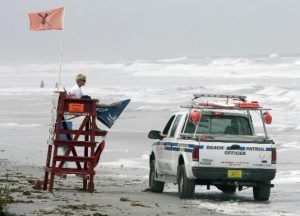
Did you know that private beaches can still technically be accessed by way of public easements? In sunny Florida, this also holds true. Under Florida law, a public beach easement is evident when the use and enjoyment of the dry sand area landward of the mean high water mark is considered an ancient custom. In order to prove public beach easement, the public needs to show that this public use of the land is ancient, reasonable and uninterrupted.
The Florida public easement law was tested back in 2007 with Trepanier v. County of Volusia. The Trepanier family sued the county of Volusia after the county began using their land for beach parking. The County of Volusia used to park seaward of the Trepanier’s property, but when hurricanes eroded the once used land were forced to park on the Trepanier property. During the trial, the County of Volusia effectively proved the Trepanier’s land is a public easement. The use of the land is reasonable as it allows Volusia residents a place to park cars to access the recreational beach. It is an ancient custom as people parked horse and buggies there long before automobiles and the custom remained uninterrupted during all those years.
In this trial the public beach easement was for access to a public beach, but it could be argued for private beaches as well. After all, people have frequented the coastline for hundreds of years. The only tricky part would be proving access was uninterrupted. If county gave over land to developers for private use, this could be considered an interruption. However, if people argued the easement during the changing of hands from government land to private land, then they could potential win public beach easement rights.

